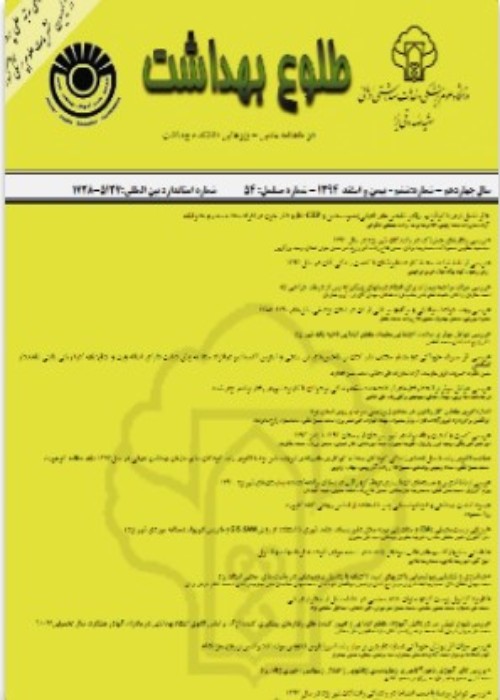Investigating the Factors Related to the Reduction of Salt Consumption in Women in Southern Iran: Application of ranstheoretical Model
Reducing salt consumption in population is one of the easiest, most efficient and cost-effective ways to reduce the burden of cardiovascular diseases. The present study was conducted with the aim of investigating the factors related to the reduction of salt consumption using transtheoretical model among women in southern Iran.
This was a cross-sectional study (descriptive-analytical) conducted from November 2022 to February 2023 on women of 18-59 who visited comprehensive health centers in Bastak city. A total number of 452 subjects were selected using convenient sampling method. Data were collected using a questionnaire with three sections: demographic information, a researcher-made questionnaire based on transtheoretical model constructs, and salt consumption reduction questionnaire. Data were analyzed using Kruskal-Wallis tests, Pearson's correlation and regression analysis with SPSS software (v. 22).
The results showed that participants were between 18 and52 with a mean of 35/51±10/13. 23/5% of the participants were in pre-contemplation stage, 21/7% in the contemplation stage, 20/8% in preparation stage, 11/3% in action stage, and 22/8% in maintenance stage. Pearson correlation analysis results indicated that there were significant positive relationships between cognitive processes (r= 0/44, p<0/01), behavioral processes (r= 0/54, p<0/01), self-efficacy (r=0/43, p<0/01) , decision balance (r= 0/37, p<0/01), and salt consumption reduction behavior; but, there was a significant negative correlation between temptation and salt consumption reduction behavior (r=-0.34, p<0/01). Moreover, regression analysis results revealed that age, counter conditioning, self-efficacy, raising awareness, decision balance, helping relationships, and temptation can predict 38/1% of the total variance in salt consumption reduction behavior (p<0/05).
According to the findings, self-efficacy, temptation, cognitive and behavioral change processes, and advantages and disadvantages of salt reduction play a major role in salt consumption reduction behavior. It is suggested that these variables be taken into account in developing and implementing educational interventions.
- حق عضویت دریافتی صرف حمایت از نشریات عضو و نگهداری، تکمیل و توسعه مگیران میشود.
- پرداخت حق اشتراک و دانلود مقالات اجازه بازنشر آن در سایر رسانههای چاپی و دیجیتال را به کاربر نمیدهد.



